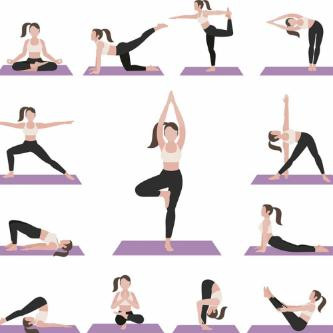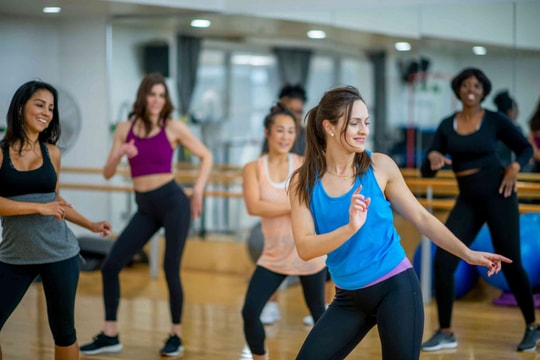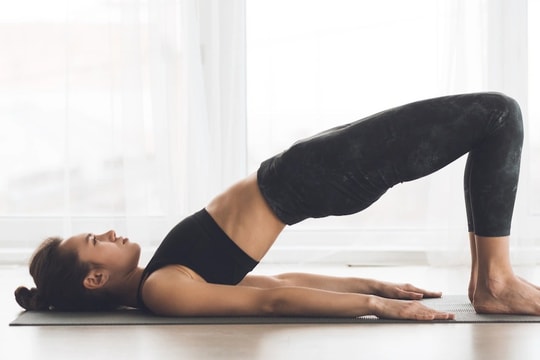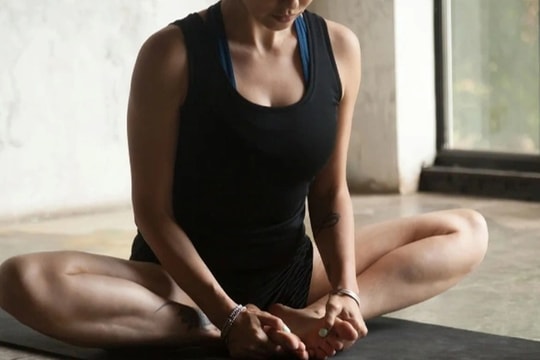Should you do yoga on an empty stomach?
More and more people are turning to yoga because of its health benefits and the fact that it can be practiced at any time. However, practitioners need to pay attention to the following issues to achieve optimal results.
Practicing yoga brings many health benefits. This discipline originated in India about 5000 years ago and was introduced to our country in the 90s of the last century.
Up to now, according to statistics of the Vietnam Yoga Federation, the whole country has over 4,300 grassroots Yoga clubs with about 550 thousand people practicing regularly.
Yoga includes postures and exercises that help practitioners improve their physical and mental health. Many studies have shown that yoga has the effect of reducing stress, preventing cardiovascular disease, improving respiratory function, sleep quality and quality of life.
1. When should I practice yoga?
Practitioners can practice yoga at any time, from morning, noon, evening to short breaks during the day. To achieve optimal results and avoid discomfort during practice, most experts recommend practicing yoga on an empty stomach.
Because the digestive process consumes a lot of energy, if you eat before practicing yoga, the performance of the postures will take energy from this process, making it impossible for the body to process and absorb all the nutrients.
In addition, performing postures such as twisting or turning can put pressure on the abdomen, hindering the digestive process and causing discomfort for the practitioner. In addition, performing inversions such as standing on the shoulders or doing handstands will also become difficult if the practitioner has eaten too much beforehand.
Eating a full meal before practice can also cause nausea or urge to go to the bathroom. This can affect your concentration in performing the poses. An empty stomach will give your abdominal wall more room to expand and contract during the poses, and will also help your spine move better.
Furthermore, eating before exercise also prevents the body from using its stored energy and thus yoga practice for weight loss is ineffective.

2. The right time to eat before and after yoga practice
Experts recommend practicing yoga about 4 hours after main meals. This helps ensure that the body has enough time to fully digest the food and can devote 100% of its energy to performing the postures and breathing exercises.
However, if you often feel hungry and need food to maintain energy, you can have a light snack about 2 hours before exercising. Juicy fruits such as watermelon, grapes, etc. are great choices for snacks, helping the body retain water during exercise.
During the practice, the practitioner also needs to ensure that the body is sufficiently hydrated. However, avoid drinking water too quickly because it can easily cause nausea when performing some counter-movements. It is best for yoga practitioners to listen to their bodies to determine the exact time to eat before practicing to achieve optimal results.
Rest for at least 15 minutes after your workout before eating to allow your body to return to normal. Always practice corpse pose at the end of your yoga session to relax your mind and body before eating. Eating immediately can make your body feel dizzy and uncomfortable.

3. Some foods and drinks to avoid before practicing yoga
Before practicing yoga, practitioners should avoid the following foods and drinks:Fried and greasy foods, as these are often difficult to digest. Raw vegetables such as celery, cauliflower, spinach, kale, and beans are high in complex carbohydrates, which can cause indigestion and bloating. Processed foods, as these foods are often high in sugar and sodium, which can strain the digestive system and leave you with insufficient energy for yoga practice. Spicy foods, as these can cause heartburn, making it difficult to perform twists or inversions. Spicy foods also contribute to increased heart rate, increased sweating, and difficulty concentrating on breathing and the teacher's instructions.








